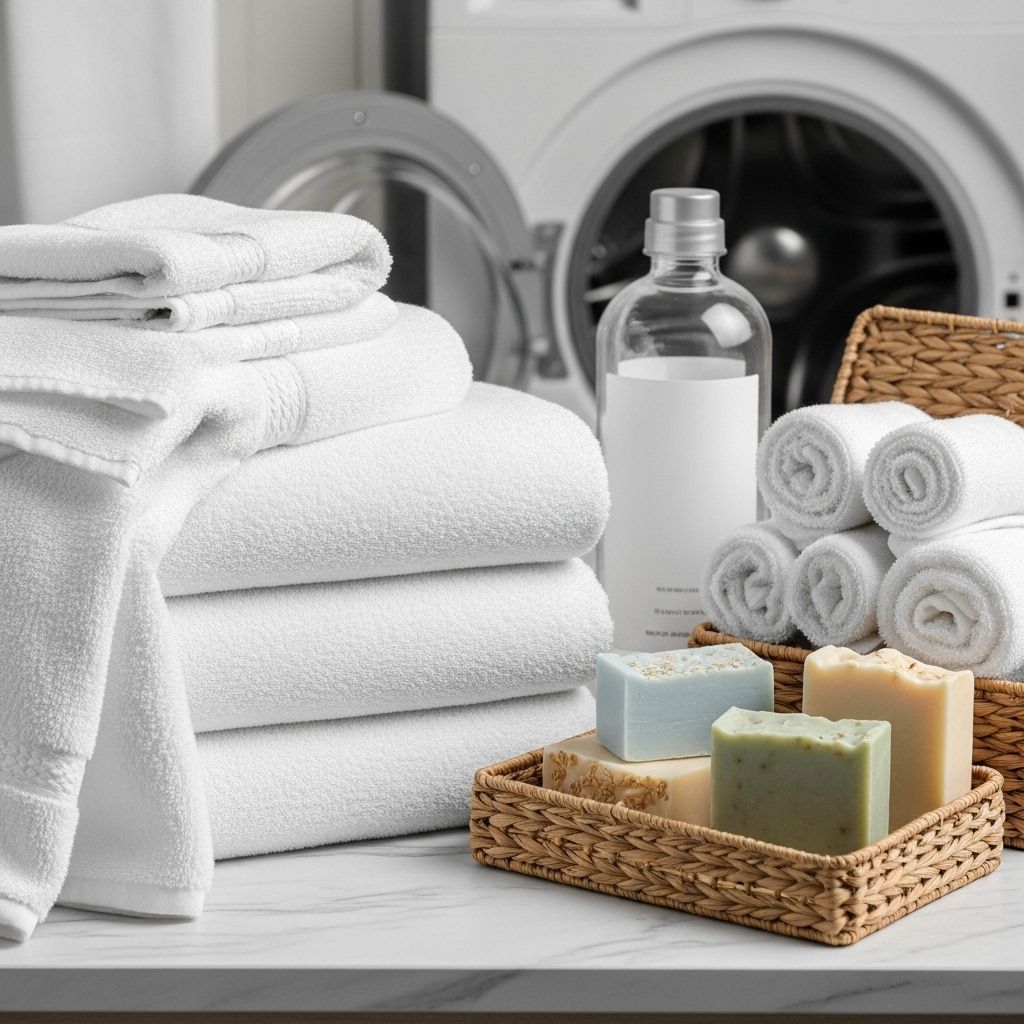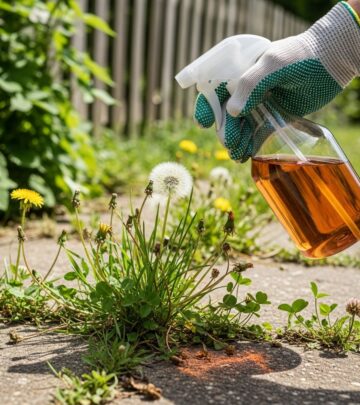Bath Towel Hygiene: How Often Should You Wash and Change Them?
Simple laundering habits keep fabrics dry and odor-free, so each use feels fresh and clean.

Bath towels play a central role in daily cleanliness routines, but they can also become harbingers of germs and bacteria if not handled with proper care. Knowing when—and how often—to wash and change your towels is more than a matter of comfort; it’s a fundamental aspect of personal hygiene.
Why Regularly Washing and Changing Towels Matters
After every use, towels absorb water, sweat, skin cells, and microscopic particles from your body. These organic materials, combined with dampness, make towels a prime breeding ground for bacteria, fungi, and even viruses. Neglecting regular towel maintenance can cause unpleasant odors, skin irritation, and potential transmission of infections, including conjunctivitis (pink eye), MRSA, norovirus, and E. coli .
Ideal Towel-Washing Frequency: The Expert Consensus
| Towel Type | Recommended Washing Frequency |
|---|---|
| Bath Towels | Every 3–4 days, or at least once a week |
| Hand Towels | Every 2–3 days, or weekly if lightly used |
| Washcloths | Every 1–2 days |
| Gym/Workout Towels | After each use |
Bath towels used by adults for daily showers usually require a wash every three to four days to maintain freshness and prevent bacterial buildup .
Hand towels, which are exposed to frequent germs and skin oils, should be changed every two to three days.
Washcloths—due to their close contact with facial skin—should be replaced every day or two.
Factors Influencing How Frequently You Should Wash Towels
- Personal Hygiene Habits: The frequency of showering and towel use directly impacts how often you should launder towels.
- Environment: High humidity slows towel drying, increasing the risk of microbial growth; in humid climates or homes, aim to wash more often—two to three times weekly .
- Health Status: Illnesses, skin conditions, or contact with bodily fluids require daily towel changes to stop the spread of germs .
- Activity Level: Workout towels and gym towels exposed to sweat and bacteria must be washed after every use .
- Children and Shared Households: Kids have less consistent hygiene and may have cuts or scrapes—each child should have their own towel, and towels should be washed more frequently.
Proper Towel Care: Tips for Maximum Freshness and Longevity
While washing frequency is essential, how you care for towels between washes can dramatically affect their cleanliness and lifespan.
How to Dry Towels Properly
- Spread towels out fully on a bar rather than hanging them bunched on a hook. This promotes faster drying and reduces bacterial growth .
- In humid or poorly ventilated bathrooms, consider using a fan or leaving the door open to increase air circulation post-shower.
- Never leave damp towels crumpled in a laundry basket or gym bag—this quickly nurtures mold and odor.
Laundry Advice for Washing Towels
- Use the hottest water safe for the towel’s fabric to kill germs and remove body oils.
- Avoid heavy use of fabric softener, as it leaves residue that can reduce absorbency over time.
- Dry towels thoroughly in a dryer or in direct sunlight when possible.
- Wash towels separate from clothes or delicate items to prevent lint transfer and ensure thorough cleaning.
Special Circumstances Requiring More Frequent Washing
- Illness or Body Fluids: Any time a towel comes into contact with blood, sweat, or other bodily fluids, or when someone is sick, switch to daily laundering .
- Skin Conditions: Those with eczema, rashes, wounds, or sensitive skin should use a fresh towel every day to reduce irritation and infection risk.
- Gym and Sports Towels: Available data confirm that these towels need to be washed after each session, given their exposure to sweat and shared equipment .
- High Humidity Environments: In climates or seasons when drying takes longer, run laundry loads more frequently.
Sharing Towels: The Risks and Recommendations
Sharing towels with a close partner may be safe if both parties are healthy, but sharing among household members—especially children or those with skin problems—is discouraged. Experts recommend every person have their own towel, especially children with poor hand hygiene or minor cuts, to minimize disease transmission .
The rule for washcloths is stricter: everyone should have their own, given their use in more sensitive body areas.
Signs Your Towel Needs Immediate Replacement
Not all towels are created equal, and wear-and-tear is inevitable. Signs that you need to replace a towel include:
- Persistent odors, even after washing
- Visible stains or mildew spots
- Loss of absorbency—towel stays damp or doesn’t dry you effectively
- Rough, scratchy texture due to fibers breaking down
Choosing the Right Towel for Your Lifestyle
The type of towel you use can impact drying times, washing requirements, and overall hygiene.
- Cotton towels: Standard for home use; highly absorbent but take longer to dry.
- Microfiber towels: Preferred for gym use, as they dry quickly and are less likely to harbor bacteria between washes .
- Waffle-weave towels: Offer fast drying and durability, providing luxury and hygiene .
Expert FAQ: Bath Towel Hygiene and Maintenance
How often do most people need to wash bath towels?
Most experts recommend washing your main bath towel every three or four days. Weekly washing is acceptable for lightly used towels, but daily or every-other-day laundering is advised for those with sensitive skin, higher humidity, or frequent use .
What happens if I don’t wash my towel often enough?
Unwashed towels quickly become saturated with dead skin, sweat, and microbial particles. These conditions promote bacterial and fungal growth, resulting in odors, skin problems, or even transmission of infections like MRSA and norovirus .
How should I store towels between uses?
Always hang towels spread out so they dry completely. Hooks cause bunching and slow drying, increasing the risk of germ proliferation .
Is it okay to use the same towel as my partner?
Sharing with a healthy partner is generally safe, but avoid sharing with anyone who is ill, has skin wounds or infections.
Should I wash gym towels differently?
Yes. Gym towels and others used on sweaty skin or shared equipment should be laundered after every use with hot water and dried thoroughly .
Do fabric softeners affect towel hygiene?
Regular use of softeners may reduce absorbency. Limit use or choose natural alternatives (like vinegar) to keep towels fluffy without residue.
Conclusion: Elevating Everyday Hygiene Through Smart Towel Care
Bath towels, like all daily-use linens, play an understated but pivotal role in personal and family health. By adopting best practices for washing, drying, and storage—and understanding when circumstances demand extra care—you safeguard your skin, prevent illness, extend towel lifespan, and create a fresher home environment.
Quick Tips Recap for Towel Hygiene
- Wash bath towels at least every 3–4 days to maintain freshness.
- Change hand towels more frequently (every 2–3 days).
- Use a clean washcloth daily or every other day.
- Gym towels require washing after every workout.
- Hang towels spread out—never bunched up—to dry quickly.
- Replace towels that retain odor, lose absorbency, or show visible wear.
Frequently Asked Questions
Q: How often should I wash bath towels if I have sensitive or eczema-prone skin?
A: Daily washing is recommended to minimize skin irritation and avoid infections.
Q: Can sharing towels cause skin infections?
A: Yes, sharing towels can transmit germs and increase the risk of infections, especially among children or those with skin wounds.
Q: What is the best way to dry towels to avoid bacteria?
A: Hang towels fully spread on a bar in a well-ventilated area for fastest drying.
Q: Are there specific towel types better for athletes?
A: Microfiber towels are recommended for gym use as they dry fast and resist bacterial buildup.
Q: When should towels be completely replaced?
A: Replace towels that remain smelly after wash, show fabric breakdown, or lose absorbency.
Further Reading:
- Expert Laundry Tips for Gym Towels
- 7 Signs You Should Replace Your Bath Towels
- Choosing Between Cotton, Microfiber, and Waffle Weave Towels
References
Read full bio of medha deb










